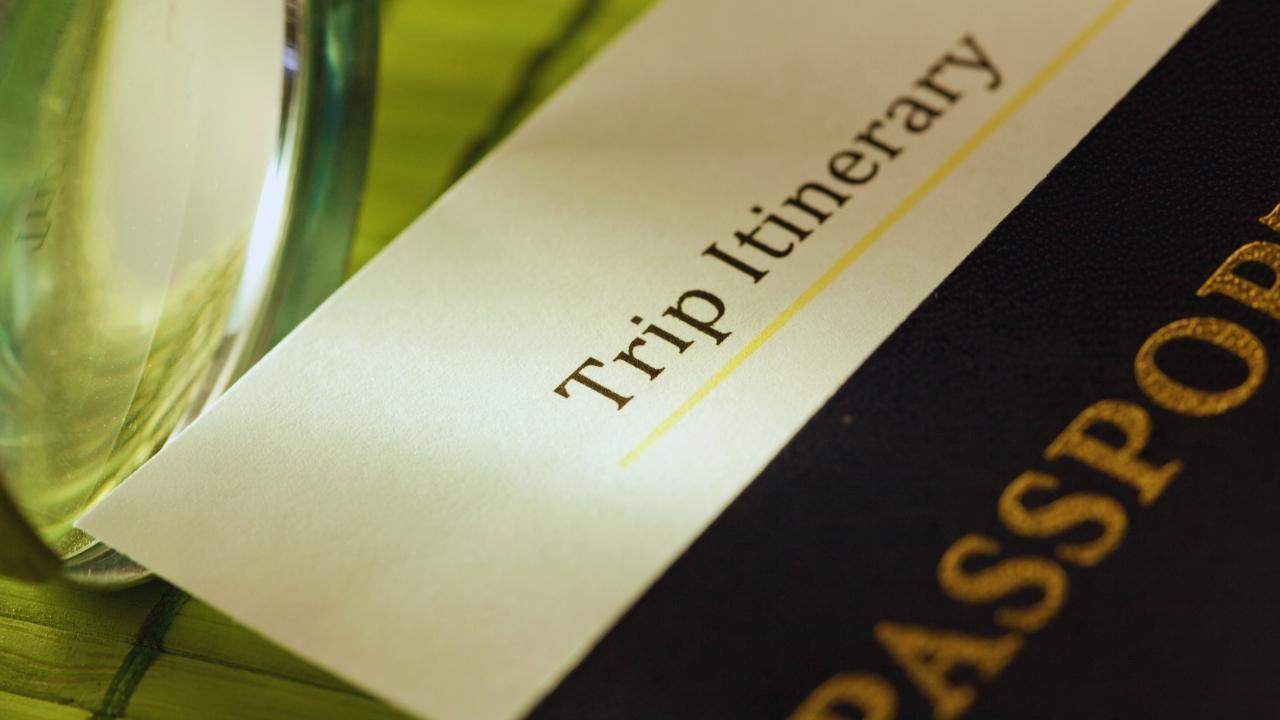You have not yet added any article to your bookmarks!

Join 10k+ people to get notified about new posts, news and tips.
Do not worry we don't spam!

Post by : Anis Farhan
For decades, planning a trip meant poring over guidebooks, comparing flight schedules, and hoping reviews on travel forums were accurate. But in today’s fast-paced world, technology has stepped in to make things smoother. Artificial Intelligence (AI), once a concept reserved for science fiction, has now become an everyday companion for travelers. From smart booking engines to personalized itineraries tailored to individual tastes, AI is changing not just how people travel, but also how they dream, plan, and experience journeys.
One of the most powerful features of AI in travel is its ability to personalize. Instead of offering generic itineraries, AI-based platforms analyze a traveler’s history, preferences, and budget to create custom journeys. For example, a foodie might receive recommendations for local street food tours, while a nature enthusiast gets suggestions for national parks or scenic train routes.
Travelers no longer need to spend hours researching online. With AI tools, the itinerary feels like it was crafted by a personal assistant who knows your tastes, lifestyle, and even your pace of travel.
Gone are the days of endlessly comparing hotel listings or juggling between multiple booking sites. AI-powered engines simplify this process. They scan thousands of options in seconds, presenting the best deals while factoring in preferences such as location, budget, and amenities. Some platforms even predict price fluctuations, advising travelers on the best time to book flights or hotels.
This efficiency saves time and often ensures better value, making travel more accessible and less stressful.
Chatbots and AI-driven travel assistants have become a common feature of travel platforms. These assistants answer queries in real time, handle booking modifications, and even suggest alternative plans when delays or cancellations occur. For frequent travelers, this means less time navigating customer service lines and more time enjoying the trip.
Imagine being stranded at an airport due to weather delays. Instead of panicking, an AI assistant can instantly recommend nearby hotels, rebook your flight, and even provide transport details—all within minutes.
Perhaps one of the most underrated advantages of AI itineraries is adaptability. Traditional travel plans are static, but AI introduces flexibility. If a museum suddenly closes or a storm disrupts outdoor activities, the system quickly reshuffles the itinerary to suggest alternatives, keeping the trip smooth.
This real-time adaptability makes travel less frustrating and more spontaneous—without the chaos that spontaneity often brings.
Traveling often comes with language barriers, but AI is bridging this gap. Translation apps powered by AI now allow near-instant communication in foreign languages, helping travelers navigate markets, order food, or ask for directions.
Some AI platforms go a step further by providing cultural insights—suggesting polite phrases, gestures to avoid, or even local customs that enhance a traveler’s experience.
With climate change becoming a pressing issue, many travelers are looking for sustainable options. AI tools can recommend eco-friendly hotels, low-emission transport routes, or even suggest destinations where tourism supports local communities.
By highlighting greener choices, AI is nudging the industry and travelers toward more responsible tourism.
AI is not only about planning—it also enriches the journey itself. Augmented reality (AR) applications powered by AI allow travelers to point their phones at landmarks and instantly access historical facts, fun trivia, or even virtual reconstructions of ancient sites.
This transforms sightseeing from passive observation into an engaging, interactive experience.
Of course, no innovation comes without concerns. Privacy and data security remain major issues. AI itineraries rely on collecting personal data, raising questions about how that information is stored and used. There’s also the risk of over-reliance—where travelers stop exploring organically and let algorithms dictate every step.
The human element of travel—serendipity, discovery, and unpredictability—must not be lost in the efficiency of AI-driven plans.
For travel companies, AI is more than a tool—it’s a survival strategy. Airlines, hotels, and tour operators are adopting AI systems to stay competitive, improve customer experience, and optimize operations. From predicting demand trends to managing pricing strategies, AI is reshaping the very foundation of the industry.
Startups specializing in AI travel planning are also booming, partnering with tourism boards and businesses to create seamless experiences for global travelers.
The role of AI in travel is only just beginning. In the coming years, travelers might see even more advanced features like predictive itineraries that plan trips months in advance, AI companions offering real-time translations through earbuds, or fully immersive AI-curated travel documentaries customized to individual journeys.
As AI continues to evolve, it’s clear that trip planning will become more intuitive, efficient, and personalized—making the world feel a little more connected.
Travel is no longer just about reaching a destination—it’s about the journey, the experiences, and the memories created along the way. With AI itineraries, travelers now have the chance to make those experiences smoother, richer, and more personalized than ever before.
While challenges remain, the benefits of AI in travel planning are undeniable. The blend of human curiosity and machine intelligence is creating a new era of exploration—where technology doesn’t replace adventure but enhances it.
This article is intended for informational purposes only. It highlights current trends and potential developments in AI travel planning but does not promote any specific service or company. Readers should conduct their own research before relying on AI platforms for travel arrangements.










Rashmika Mandanna, Vijay Deverakonda Set to Marry on Feb 26
Rashmika Mandanna and Vijay Deverakonda are reportedly set to marry on February 26, 2026, in a priva

FIFA Stands by 2026 World Cup Ticket Prices Despite Fan Criticism
FIFA defends the high ticket prices for the 2026 World Cup, introducing a $60 tier to make matches m

Trump Claims He Ended India-Pakistan War, Faces Strong Denial
Donald Trump says he brokered the ceasefire between India and Pakistan and resolved eight wars, but

Two Telangana Women Die in California Road Accident, Families Seek Help
Two Telangana women pursuing Master's in the US died in a tragic California crash. Families urge gov

Ranveer Singh’s Dhurandhar Roars Past ₹1100 Cr Worldwide
Ranveer Singh’s Dhurandhar stays unstoppable in week four, crossing ₹1100 crore globally and overtak

Asian Stocks Surge as Dollar Dips, Silver Hits $80 Amid Rate Cut Hopes
Asian markets rally to six-week highs while silver breaks $80, driven by Federal Reserve rate cut ex